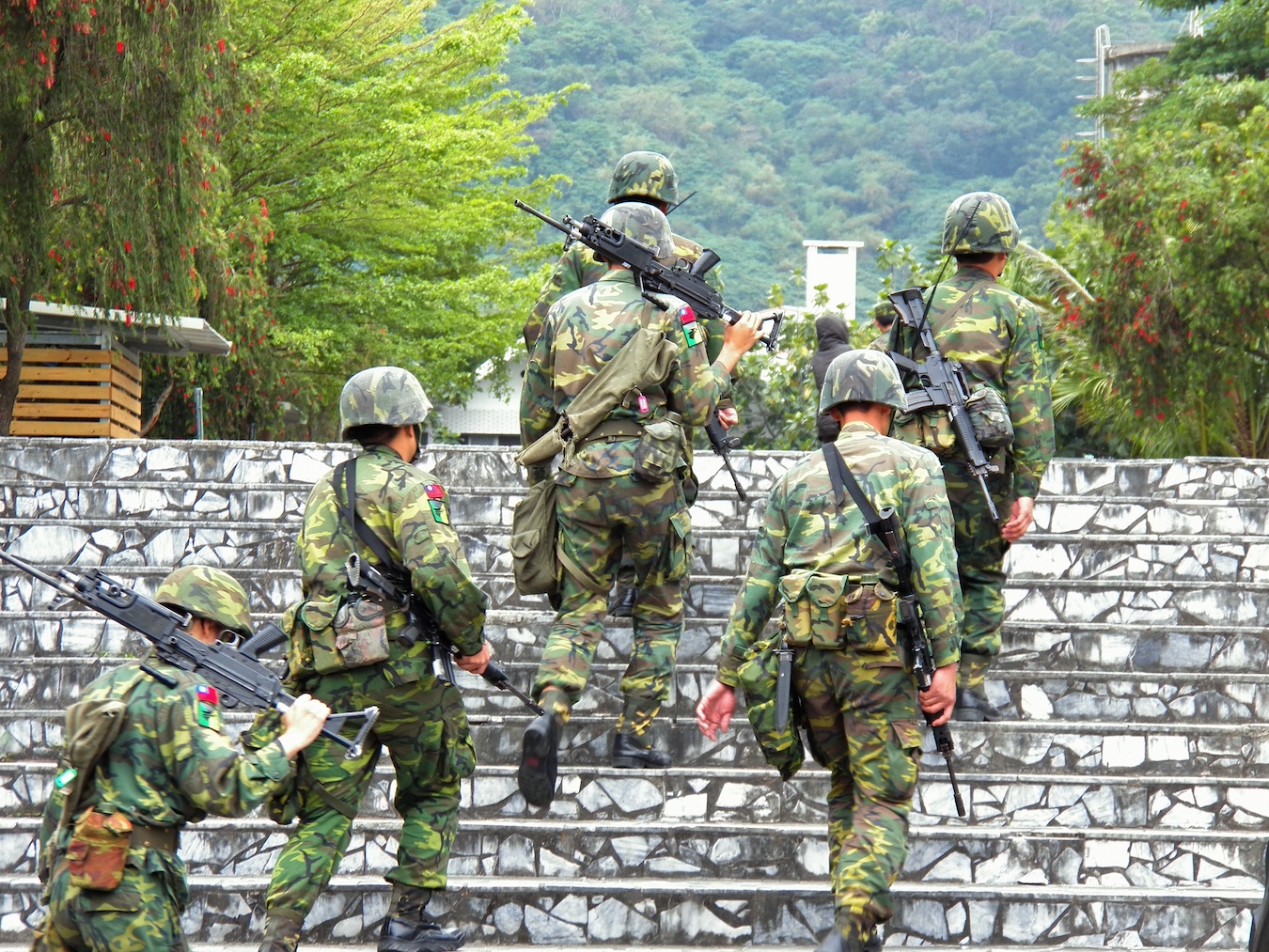by Brian Hioe
語言:
English
Photo Credit: 玄史生/CC BY-SA 3.0
FORMER NATIONAL SECURITY COUNCIL secretary-general Ting Yu-chou criticized the four-month draft in recent public comments. The comments were made by Ting, who served as secretary-general of the NSC under the Chen administration, at a book launch by Chang Rong-feng. Chang was a former Lee Teng-hui administration security official in the NSC.
Ting criticized the four-month draft as an attempt by both political parties to pander to young voters. To this extent, Ting also criticized the reduction of the draft as damaging to not only the regular armed forces, but the fighting capacity of the reserves. He was particularly critical that the reduction of the draft took place at the same time as the modernization and rapid development of the PRC military.
Ting’s comments otherwise touched on the present, suggesting that he had not seen a period in his career when Americans were as attentive to Taiwan. That being said, Ting suggested that America did not have any inherent fondness for Taiwan, but that the US was increasingly concerned with Taiwan due to tensions with China. However, Ting warned of the dangers to Taiwan from a potential cross-strait clash that involved the US.
There has been increasing discussion of increasing the length of the military draft in Taiwan following Russia’s invasion of Ukraine. The invasion of Ukraine has, in many ways, served to remind Taiwan of the potential scenarios it would face in the event of a Chinese invasion.
Indeed, the Taiwanese public donated millions in USD to Ukraine, as well as significant amounts of medical supplies. One can understand the outpouring of support to Ukraine in that Ukraine served as a proxy issue for Taiwan, by which Taiwan could project its own anxieties about a potential invasion onto Ukraine. Hong Kong had previously occupied a similar niche in Taiwanese politics, in that donations of protest supplies to Hong Kong–such as thousands of gas masks–took place because Taiwan projected its anxieties regarding deteriorating political freedoms as a result of Chinese influence in Hong Kong.
 Photo credit: 玄史生/CC BY-SA 3.0
Photo credit: 玄史生/CC BY-SA 3.0
It may not be surprising, then, that one saw Taiwanese civic groups organizing civil defense training, including with regards to firearms training, disaster relief, and medical aid after the training. Likewise, the Tsai administration attempted to tout lengthened and more intensive training periods for reservists after the invasion, so as to reassure that it was not lax in defense preparedness.
After the invasion, there has been more overt push and pull between Taiwan and the US about what measures Taiwan should take for its defense, with the US seeking to push Taiwan toward greater reliance on asymmetric warfare, rather than an emphasis on symmetric defense along the lines of conventional warfare. This has included with regards to the draft, with former Trump administration secretary of defense Mark Esper stating during a recent visit to Taiwan that he supported lengthening the military draft to one year and including women in the draft.
At the same time, there have been few suggestions from political parties about lengthening the draft. Though one saw some KMT politicians latch onto the issue in order to attack the DPP, with elections scheduled to take place later this year, it is unlikely that either pan-Blue or pan-Green would propose lengthening the draft.
Nevertheless, the Tsai administration or any future political administration clearly has more momentum to push for lengthening the draft than in the past. But to this extent, it is of significance to note when former national security officials with a pan-Green background, such as Ting Yu-chou, propose lengthening the draft.
One of the significant reasons for the disinterestedness of young people in serving in the military is the strong association of the military with ROC nationalism. The military is further seen as corrupt and lacking in transparency, due to incidents such as drug smuggling incidents, the deaths of military cadets under unclear circumstances, or animal abuse by members of the military, much as the KMT as a whole was seen as corrupt and lacking in transparency during the authoritarian period.
But when there has been criticism of the four-month military draft, from non-pan-Blue actors, who may nostalgize the ROC military along the lines of the “800 Heroes” and other deep Blue anti-Tsai political forces, it has more often come from deep Greens such as the Formosa Alliance. Members of the Formosa Alliance and similar groupings resent Tsai for her progressive social policy, such as the legalization of gay marriage, or the simple fact that she holds the highest political office in Taiwan as a woman. It is to be seen, then, if the military can shed a conservative political image, whether pan-Blue or pan-Green.

